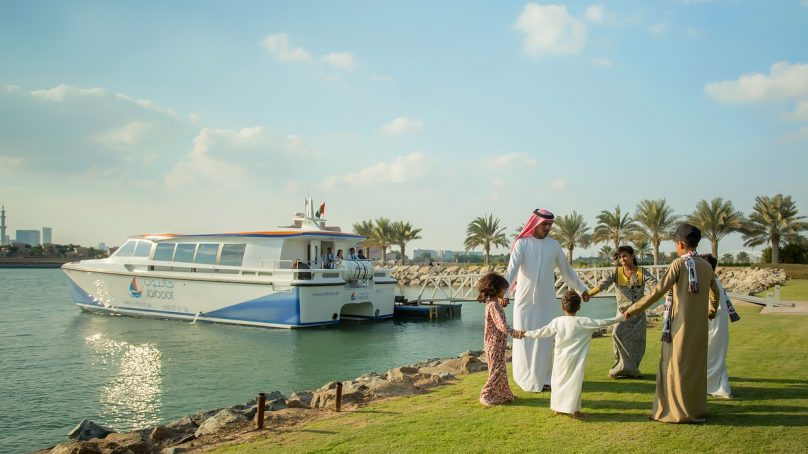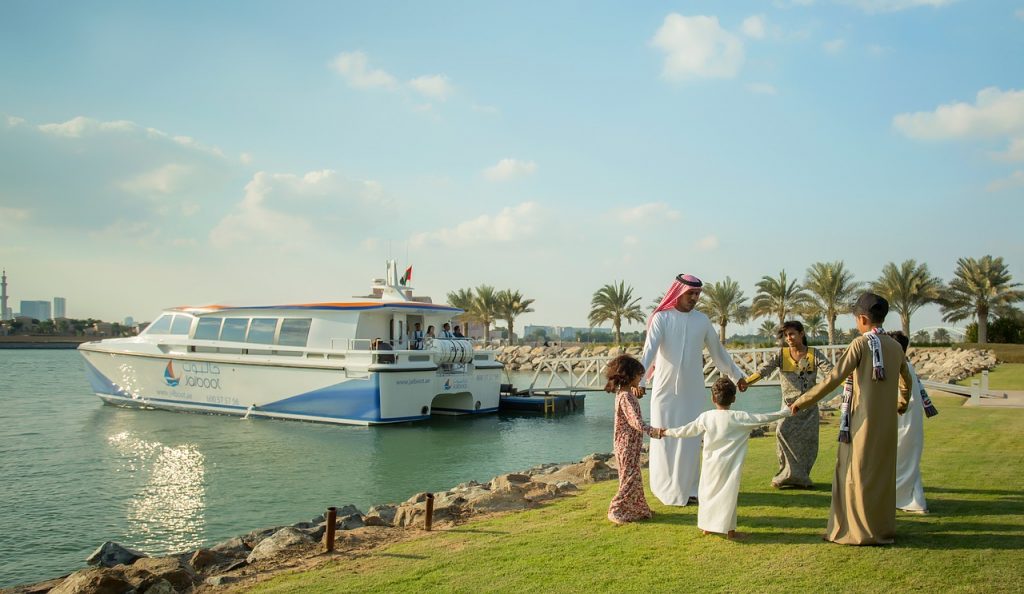
 Local tourism and domestic travel are expected to lead the UAE and wider GCC’s recovery from COVID-19 as we begin to see the easing of lockdown restrictions. These insights were revealed by research led by Colliers International, in partnership with ATM ahead of Arabian Travel Market (ATM) Virtual, a newly-launched three-day event that will take place from 1-3 June 2020.
Local tourism and domestic travel are expected to lead the UAE and wider GCC’s recovery from COVID-19 as we begin to see the easing of lockdown restrictions. These insights were revealed by research led by Colliers International, in partnership with ATM ahead of Arabian Travel Market (ATM) Virtual, a newly-launched three-day event that will take place from 1-3 June 2020.
According to the research, the percentage of bookings to Abu Dhabi within a 48km radius increased from just 20 percent in January 2020 to 43 percent in March. While, in Dubai, the percentage rose from 19 percent to 36 percent.
Adding to this, research by Sojern, suggests staycations are expected to become the most popular choice of travel in the short to medium-term, with data revealing hotel bookings to Abu Dhabi within a 48km radius accounted for 77 percent of all bookings in April and domestic travel from Dubai accounting for 91 percent of searches and bookings within the same radius.
With this in mind, ‘The Hotel Landscape in a Post-COVID-19 World’ session taking place on Monday 1st June from 1.30 pm – 2.30 pm GST (10.30 am – 11.30 am BST), will focus on the hospitality industry, exploring the profound impact of COVID-19 on the Middle East’s hotel sector as well as outlining what the landscape is likely to look like when travel resumes and what will be considered new ‘norms’ in terms of guest behaviors and expectations.
Confirmed session panelists will include Tim Cordon, Senior Area Vice President for Middle East & Africa, Radisson Hotel Group and Christopher Lund, Head of Hotels, Colliers International, Middle East & North Africa, and will be moderated by Gemma Greenwood.
Danielle Curtis, Exhibition Director ME, Arabian Travel Market, said: “The global COVID-19 health crisis severely impacted worldwide travel, tourism, events, and leisure activities, with many people being forced to cancel or postpone their travel plans in the first half of 2020. However, what we are now beginning to see is a sense of pent up demand due to an eagerness among the larger populace to make up for lost time and cancelled plans.
“Travellers still want to go on holiday, but safety has become a top priority. As a result, the staycation trend is expected to grow in the coming months, with residents keen to take a break away from their home for a few days in a location that is familiar to them, whilst flights are grounded, and international travel restrictions still in place.”
Families and solo travelers are expected to be among the first market segments to start travelling and making new reservations, according to the research from Colliers. In addition, Millennials and Gen Z are being touted as the most eager to travel, as they seek a change of scenery following long lockdown periods across the globe.
In preparation for the travel and tourism recovery – on a local, regional and international level – it is crucial hospitality companies can provide future guests with peace of mind by implementing and virtually showcasing the stringent hygiene and deep cleaning procedures performed rigorously across their properties.
In addition, the implementation of immersive technologies that provide potential guests with virtual 3D tours of properties and their facilities, as well as customized online booking experiences will be vital in helping hotels stand out from their competitors.
“As travel and tourism begins to return, it is crucial that hotels add value to their existing offerings with incentives such as F&B discounts for in-house guests, free upgrades and booking flexibility that enables free cancellation if personal circumstances were to change as well as reinvented loyalty programs with increased offers and points in an attempt to stimulate demand through their existing customer bases,” Curtis said.
Also on the agenda, there will be a series of hospitality-focused roundtables including ‘Changing face of hotels in terms of design and sanitation,” which will discuss how hotels can effectively integrate hygiene and new stringent cleaning protocols into key brand messaging as well as exploring whether hygiene and safety will become more important for guests than price, facilities, and services in the ‘new normal’ hotel experience.
‘Changing face of F&B travel’ will address the effects of COVID-19 on food-driven travel in the region, and indeed across the globe. A panel of F&B experts and influencers will explore how hotels can provide a safe middle-ground for food adventures as well as the impact a lack of travel from GCC countries could have on Asian food capitals.
‘The Changing Face of Luxury Family Travel’ will discuss how personal space and well being peace of mind has become paramount, what impact this will have on luxury family travel, from new preferential destinations and accommodation to the factors shaping the decision-making process.
Curtis said: “As well as addressing the impact the global health pandemic has had on the hospitality industry, ATM Virtual, will discuss in-depth a road map to recovery for the wider travel and tourism industry, identifying the trends and opportunities that are likely to shape the future as well as the ‘new normal’ that lies ahead.”
Add to Favorites



















